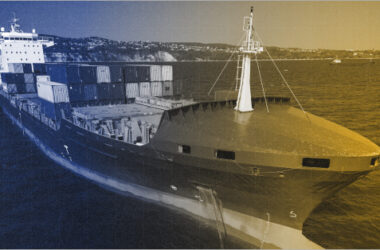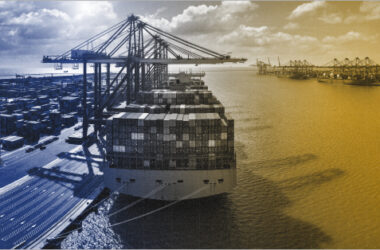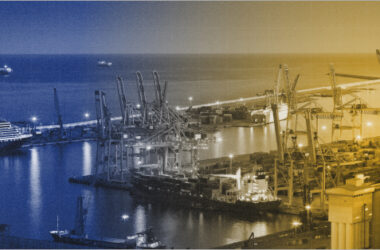In the world of global trade and marine logistics, understanding the terminology is crucial for smooth transactions. One such term that frequently comes up in Marine Insurance policies is Incoterms. But what exactly are Incoterms and why do they matter in Marine Insurance in India?
The problem is, many businesses, especially those new to international shipping, struggle to grasp how Incoterms impact the terms of insurance coverage, leading to confusion and potential financial risks. This blog aims to clarify what Incoterms in Marine Insurance are and how they influence marine insurance policies in India. You will also get to know why having a solid understanding of them can protect your shipments and mitigate risks. Let’s dive in!
Understanding Incoterms: An Overview
Incoterms, short for International Commercial Terms, are a set of standardised terms used globally in international trade. Developed by the International Chamber of Commerce (ICC), these terms define the responsibilities of buyers and sellers for the delivery of goods in international trade transactions. They also clarify aspects such as shipping, customs duties and insurance coverage. First introduced in 1936, Incoterms have undergone several revisions, with the most recent update being in 2020. Their primary purpose is to avoid confusion, streamline trade and minimise disputes over delivery, costs and risks.
To understand the role of Incoterms in Marine Insurance policies, it’s essential to know that these terms primarily determine when and where the responsibility for goods transfers from the seller to the buyer. The term you choose affects various aspects of the shipping process, including who is responsible for purchasing Marine Insurance.
It’s important to note that Incoterms do not constitute a complete sales contract; they only address delivery obligations. Issues like transfer of title, payment terms, and dispute resolution must be addressed separately in the sales agreement.
The Relevance of Incoterms in Marine Insurance
Now that we know what Incoterms are, let’s talk about why they matter in Marine Insurance policies. Simply put, Incoterms define the risk transfer points between the buyer and seller in a transaction. They determine who assumes responsibility for the goods at each stage of the shipment—this includes the critical component of insurance coverage.
Marine Insurance is designed to protect goods against loss or damage during transit. However, not all risks are covered equally and the Incoterms you agree on directly affect the insurance liability.
For example, in an Incoterm such as CIF (Cost, Insurance and Freight), the seller is responsible for arranging and paying for the Marine Insurance. But in other terms, like EXW (Ex Works), the buyer assumes the responsibility for insurance coverage once the goods leave the seller’s premises.
Understanding the relationship between Incoterms and Marine Insurance is fundamental to avoiding gaps in coverage and ensuring that both parties are adequately protected throughout the shipping process.
Key Incoterms Relevant to Marine Insurance in India
Incoterms are divided into different categories depending on how goods are transported and which party is responsible for the various logistics involved. Here’s a breakdown of some of the most commonly used Incoterms in marine shipping:
EXW (Ex Works)
Who takes responsibility: The buyer.
Marine insurance responsibility: The buyer arranges and pays for Marine Insurance, as the risk transfers to them once the goods are made available for pickup at the seller’s location.
FOB (Free On Board)
Who takes responsibility: The seller is responsible for delivering the goods to the port of shipment and loading them onto the ship. Once the goods are on board, the risk is transferred to the buyer.
Marine insurance responsibility: The buyer is responsible for Marine Insurance from the moment the goods are loaded onto the ship at the port of origin, as risk transfers at that point.
CIF (Cost, Insurance and Freight)
Who takes responsibility: The seller assumes responsibility for the goods, including freight costs, up until the destination port.
Marine insurance responsibility: The seller is responsible for arranging and paying for Marine Insurance. However, the seller is only obligated to provide minimum coverage under Institute Cargo Clauses (C). The buyer should arrange additional insurance if a higher level of protection is required.
DDP (Delivered Duty Paid)
Who takes responsibility: The seller is responsible for the goods until they are delivered to the buyer’s premises, including customs duties and taxes.
Marine insurance responsibility: Although Incoterms do not mandate insurance under DDP, the seller typically arranges insurance to cover the full journey, including customs clearance and final delivery. However, insurance must be explicitly agreed upon in the contract.
CFR (Cost and Freight)
Who takes responsibility: The seller is responsible for arranging and paying for freight costs up to the destination port. However, the risk transfers to the buyer once the goods are loaded on board the vessel at the port of origin.
Marine insurance responsibility: The buyer should arrange and pay for Marine Insurance, as the seller is not obligated to do so under CFR.
Each of these terms determines who holds responsibility at different stages of the shipping process and crucially, who bears the risk of loss or damage during transport. The alignment of these terms with Marine Insurance is critical to minimising potential financial setbacks from shipping-related accidents.
How Incoterms in Marine Insurance Policies Determine Insurance Coverage
Incoterms do more than just set shipping rules—they are also fundamental in shaping the coverage provided by Marine Insurance. Here’s how:
- Risk Transfer: Incoterms determine when the risk of loss or damage passes from the seller to the buyer. For example, in a FOB agreement, the risk passes once the goods are on the vessel. If damage occurs before the goods are loaded, the seller is liable, while any damage after the goods are on board falls under the buyer’s responsibility.
- Insurance Arrangement: Incoterms in Marine Insurance can dictate who is responsible for arranging insurance. If the seller is responsible for the goods and shipping costs (as in CIF), the seller will usually be responsible for purchasing marine insurance. But if the buyer assumes more responsibility (as in EXW), the buyer will need to arrange their own insurance coverage.
- Claims: Depending on the agreed-upon Incoterm, if goods are damaged or lost during transit, the party responsible for the shipping will also be the one to deal with the insurance claims. So, the clarity provided by Incoterms ensures that insurance claims are processed correctly, without confusion over responsibility.
Marine Insurance Types and Incoterms in India
Marine Insurance is a broad field, with various types of policies available to cater to different needs. These policies often align with specific Incoterms and the related risks.
- Hull Insurance: This covers the ship or vessel itself against risks like storms, collisions or other accidents. It is typically relevant to shipowners or charterers, not buyers or sellers of goods. Incoterms generally do not impact the need for hull insurance.
- Cargo Insurance: This covers the goods being transported, ensuring protection against loss or damage. Cargo insurance is particularly important under Incoterms like FOB or CIF, where the risk of loss or damage passes between the buyer and seller at different stages.
- Protection and Indemnity (P&I) Insurance: This covers legal liabilities for shipowners and operators. It protects against risks like environmental damage or third-party injuries. While not directly tied to Incoterms in Marine Insurance, it could be relevant if your shipping process involves complex logistics or shipping operations.
Each of these insurance types is designed to address different risks associated with marine shipping and international trade. They need to be carefully considered in relation to the Incoterm chosen in the contract.
Best Practices for Businesses in India to Manage Marine Insurance and Incoterms
To avoid the risks associated with misinterpreting Incoterms in Marine Insurance, consider the following best practices:
- Clarify Your Responsibilities: Make sure both parties are clear about who handles what aspect of shipping, including insurance. This ensures that there are no surprises when it comes time to file claims.
- Select the Right Incoterms: Choose Incoterms that align with your business’s risk appetite and shipping needs. For example, CIF is often favoured by buyers who want the seller to handle the bulk of the logistics and insurance.
- Work with an Expert: Consult with Marine Insurance brokers or legal experts to ensure your policy covers all aspects of your shipping contract.
- Review Insurance Coverage: Always ensure that your insurance covers all potential risks based on your Incoterm. Remember that the cheapest policy isn’t always the best.
Final Thoughts
Understanding Incoterms and their relationship with Marine Insurance policies in India is essential for businesses engaged in international trade. By selecting the right Incoterms, aligning them with appropriate insurance policies and working with experienced professionals, you can safeguard your goods and minimise risks during transit. Remember, a little preparation goes a long way in ensuring your shipments are protected from start to finish. So, do get to know your Incoterms—your business’s security in international trade depends on it!








